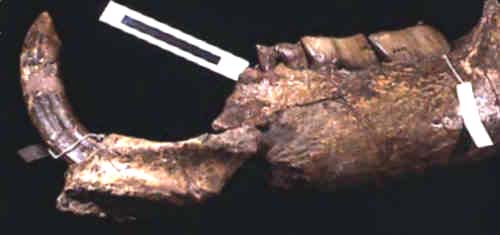 Meridiungulata:
Meridiungulata:| Meridiungulata | ||
| The Vertebrates | Meridiungulata |
| Vertebrates Home | Vertebrate | Vertebrate |
|
Abbreviated Dendrogram
|
Contents
Overview |
Range: Paleocene to ?Pleistocene of South America
Phylogeny: Bulbulodentata : Hyopsodontidae + * : Didolodontidae + Notoungulata.
Note: This taxon was originally founded on the idea that all endemic South American ungulates were monophyletic. This now seems less unlikely. DeMuizon & Cifelli [dC00] propose a new, and much better substantiated clade, Panameriungulata, defined as Mioclaenidae + Kolpaniinae + Didolodontidae + Litopterna, where the first-named taxa are North American "condylarths" (basal ungulates). This approach is not adopted here for two reasons. First, it leaves the Notoungulata in limbo. They may or may not be panameriungulates. Yet, our own belief is that notoungulates are very closely related to didolodonts, so that it makes better sense to deal with a crown clade that includes both, treating the vaguely-defined Didolodontidae as the stem group Litopterna > Notoungulata. Second, the taxa used to define Panameriungulata are themselves undefined and probably redundant. Our preference in this kind of case is for crown groups to be defined on the basis of exactly two taxa, of genus level or below. Where relationships are uncertain, it is all the more important that terminology be clear, since the terms themselves are shorthand for phylogenetic hypotheses which ought to be explicit and testable.
Image: Granastrapotherium snorki from La Venta Fauna: Fossil Gallery. This is an astrapotherian, a basal group of meridiungulates, from the Miocene of Columbia.
Links: Basal Meridiungulata Mikko); The "condylarths" (archaic Ungulata, Mammalia) from the early ....
References: deMuizon & Cifelli (2000) [dC00]. ATW021224.
checked ATW040708